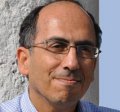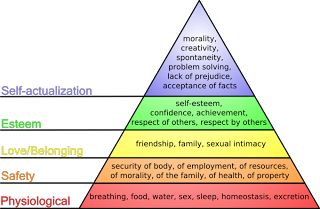Motivation
TRANSCEND MEMBERS, 27 Jun 2016
Prof. Mazin Qumsiyeh | Popular Resistance – TRANSCEND Media Service
 22 Jun 2016 – On a lengthy trip (due to checkpoints and alternate roads under occupation) to Ramallah, we had a chance to think and discuss issues like human condition and motivations. Three of us from the Palestine Museum of Natural History were on the way to meet with an official of the UN Development Program and with leadership of an active NGO working on agriculture and the environment. Having a very busy life working 16 hours a day seven days a week basically leaves us little time for reflection.
22 Jun 2016 – On a lengthy trip (due to checkpoints and alternate roads under occupation) to Ramallah, we had a chance to think and discuss issues like human condition and motivations. Three of us from the Palestine Museum of Natural History were on the way to meet with an official of the UN Development Program and with leadership of an active NGO working on agriculture and the environment. Having a very busy life working 16 hours a day seven days a week basically leaves us little time for reflection.
Back in Bethlehem, I decided to take a bit more time last evening to do more reflection and share some thoughts especially on the state of our world and our role in it. I am sure all of us considered these same issues. There is unprecedented connectivity and access to information and we have richness of nature and enough resources to give everyone on this planet a comfortable life. Yet, we have over 1 billion people living in poverty. Hundreds of millions go hungry. There are murders, terrorism, war, and all other human cruelty to other humans (and to animals and to nature). There is a deterioration of quality of politicians and proportional increase in governmental lies. The global environment is at the breaking point (climate change etc.). The rich are getting richer and the poor getting poorer.
In this man made mayhem, it is not too difficult to understand why cynical right wing politicians can rally people based on “safety/security” concerns (the most powerful human emotion of fear). A friend of mine from a developed country noted that “ We’d better figure out ways to spread some equity around if we want to go on living in a society that is at least semi functional. .” But the devil is in the detail. We should take the time to think of what world we want and how do we get there.
I am sure that all people like me somehow dream of a better world. If I was a child and drew it, I would draw it as a natural world, beaches, streams, beautiful trees, colorful animals running around, children playing and living in harmony with this “natural ecosystem”. Envisioning such a world of harmony, bliss and happiness is not a utopian silly dream. But not achieving it soon should not be an impediment to (re)thinking our own role in this. First we do need to understand human needs and motivations. The US psychologist Abraham Maslow proposed that there is a hierarchy of needs in his 1943 paper “A Theory of Human Motivation”.
We can think of this is a pyramid with these needs from bottom to top of pyramid: physiological needs (food, drink, sex etc), safety, love/belonging, esteem/recognition, and finally self-actualization. Today most people especially in underdeveloped and developing countries are actually at that bottom rung in the pyramid. We in Palestine do not have too many answers since most of our people are still at that subsistence level. It is irritating to see the elites (including Palestinian and Israelis) who have their basic needs met refuse to rise to higher levels and get motivated to do something different to make this a better world. At least they should/could follow Howard Zinn’s advice and get off the train (His book “you can’t be neutral on a moving train”).
By not being part of the problem, humans at least open the possibility of being part of the solution. The next step is of course “trouble-making”: stirring the stagnant waters so to speak. One of the inspiring groups I know that does this is CodePink whose members put themselves in places challenging political elites and challenging hypocrisy. The third stage of this process is to envision the alternative and build it. Many people do a great job at separating them-selves from the oppressive and apathetic hords and challenging the oppression. But few go to that third level of building and thus self-actualizing. I ended my book “Sharing the Land of Canaan” (published 2004) with this:
BEGIN QUOTE
Breaking through the conundrums humans have created is not easy. It will require transcending a part of our selves that may seem familiar and reassuring. Learning to live together, while initially uncomfortable, can lead to a new way of thinking. Joseph Campbell wrote in 1968: “Today, the walls and towers of the culture-world that then were in the building are dissolving … But of course, on the other hand, for those who can still contrive to live within the fold of a traditional mythology of some kind, protection is still afforded against the dangers of an individual life; and for many the possibility of adhering in this way to established formulas is a birthright they rightly cherish, since it will contribute meaning and nobility to their unadventured lives, … and to those for whom such protection seems a prospect worthy of all sacrifice, and orthodox mythology will afford both the patterns and the sentiments of a lifetime of good repute. However, by those to whom such living would be not life, but anticipated death, the circumvallating mountains that to others appear to be of stone are recognized as of the mist of dream, and precisely between their God and Devil, heaven and hell, white and black, the man of heart walks through. Out beyond those walls, in the uncharted forest night, where the terrible wind of God blows directly on the questing undefended soul, tangled ways may lead to madness. They may also lead, however, as one of the greatest poets of the Middle Ages tells, to ‘all those things that go to make heaven and earth.’ “(Campbell, Joseph. 1968. The Masks of God: Creative Mythology. Viking Penguin Inc., New York, p. 37.)
It is indeed a journey of awakening at the individual level that is not only spiritual, but also require concrete action to bring true peace and justice to fruition. We Canaanites, who invented the alphabet, domesticated animals and developed agriculture, and made this arid land into a land of milk and honey, surely can do this. An Arab poet wrote “Itha Asha3bu yawman Arad al-7ayata fala budda an Yastijeeb al-qadar. Wala budda lillayal an Yanjaili wala budda li-thulm an yankasir.” Roughly translated, it means: If the people one day strive for life, then ultimately destiny will respond and the night will give way and the injustice will be broken. The path to peace is not served by the creation of more states or unjust “fixes” to perceived demographic “problems.” It has to do with justice and implementation of human rights and international law. It requires grass root action to accelerate its arrival but it is the only solution possible in the long term. We can either remain locked in our old mythological and tribal ways or we can envision a better future and work for it. The choice is obvious.
END QUOTE
But much more needs to be thought of and said and acted upon in these areas. It is after all this search for a meaning of live and our role in it that is at the heart of what makes us human. Let us all resolve to take less time on things like facebook and more time to really look and act deeper. I for one hope to spend more time with intelligent thoughtful people thinking more collectively of these things and acting on them.
A Museum and Institute of Sustainability and Biodiversity at Bethlehem University
http://middleeast-business.com/a-museum-and-institute-of-sustainability-and-biodiversity-at-bethlehem-university/
_______________________________________
Prof. Mazin Qumsiyeh is a member of the TRANSCEND Network for Peace, Development and Environment, author of Sharing the Land of Canaan and Popular Resistance in Palestine. He is a professor at Bethlehem University and director of the Palestine Museum of Natural History in Bethlehem. http://palestinenature.org
Go to Original – popular-resistance.blogspot.pt
DISCLAIMER: The statements, views and opinions expressed in pieces republished here are solely those of the authors and do not necessarily represent those of TMS. In accordance with title 17 U.S.C. section 107, this material is distributed without profit to those who have expressed a prior interest in receiving the included information for research and educational purposes. TMS has no affiliation whatsoever with the originator of this article nor is TMS endorsed or sponsored by the originator. “GO TO ORIGINAL” links are provided as a convenience to our readers and allow for verification of authenticity. However, as originating pages are often updated by their originating host sites, the versions posted may not match the versions our readers view when clicking the “GO TO ORIGINAL” links. This site contains copyrighted material the use of which has not always been specifically authorized by the copyright owner. We are making such material available in our efforts to advance understanding of environmental, political, human rights, economic, democracy, scientific, and social justice issues, etc. We believe this constitutes a ‘fair use’ of any such copyrighted material as provided for in section 107 of the US Copyright Law. In accordance with Title 17 U.S.C. Section 107, the material on this site is distributed without profit to those who have expressed a prior interest in receiving the included information for research and educational purposes. For more information go to: http://www.law.cornell.edu/uscode/17/107.shtml. If you wish to use copyrighted material from this site for purposes of your own that go beyond ‘fair use’, you must obtain permission from the copyright owner.
